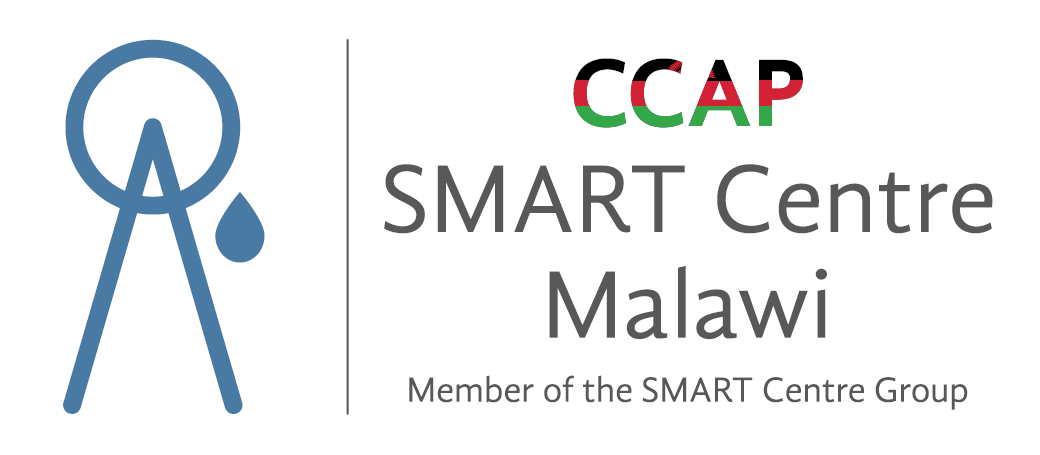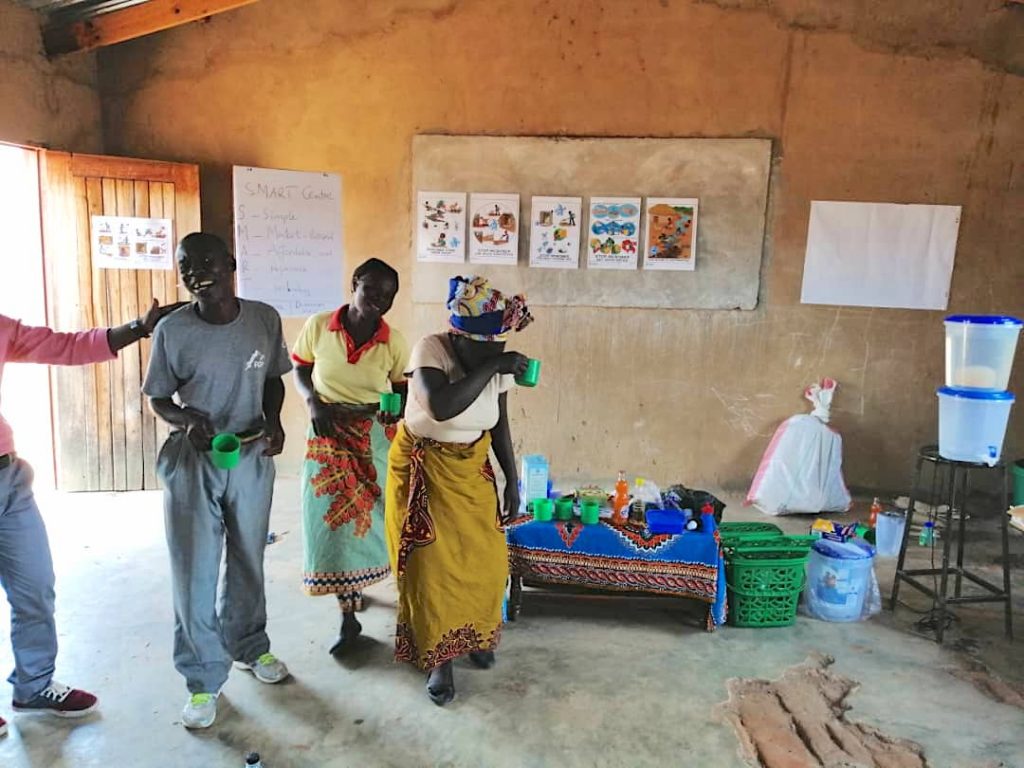
One of our longest running projects is our Faith and Water training. It fits perfectly within our organization, as it is focused on rural Malawi and consist of giving training to local people. First piloted in 2017, our staff members are getting better at making these trainings a success. That’s why, when funding became available to the Centre for training purposes, the choice to continue with Faith and Water sessions was quickly made. This time we went to four regions, visiting two communities in each.
Focussing on WASH
The Faith and Water trainings are focused on clean and safe water, sanitation, and hygiene; WASH in short. The benefits are explained to local church in their local language. With help of games, visual aspects and case studies, it is for example explained how bacteria spreads, or how a water filter can prevent diseases. For instance: to give them a better perspective on contaminated water, we show two bottles filled with water. To one, salt is added. Both look identical, but after a taste test the difference between the two are made clear. This goes to show contaminated water can look as clear as any water, but may still be filled with bacteria.
Linking WASH to Bible verses
We emphasize the training is not a lecture, but a dialogue. As this training is provided to church leaders and their congregations, we link safe and clean water and sanitation to verses from the Bible. In many verses, God teaches the benefits that come with taking proper care of yourself. This way, we try to get the people following the training involved and enthusiastic about sharing their knowledge to their communities after the training is finished. After some time, we do a follow-up visit to see how things are going and whether the techniques they learned during our training are still being used, and whether knowledge has been shared with community members.
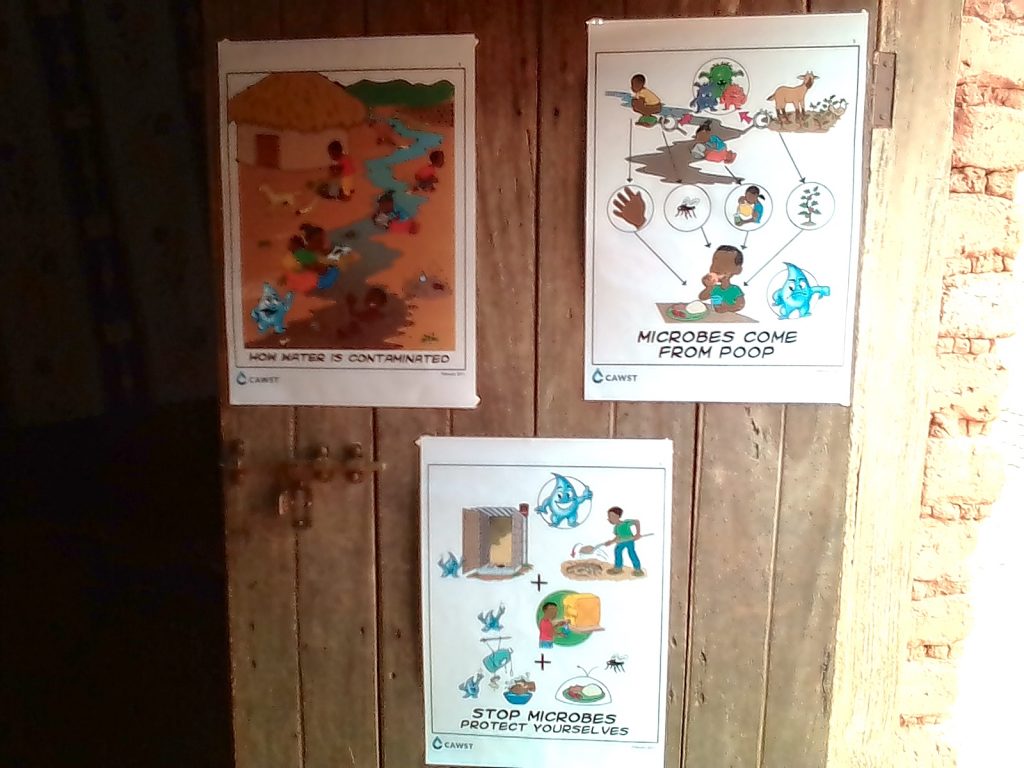
Posters about contamination. 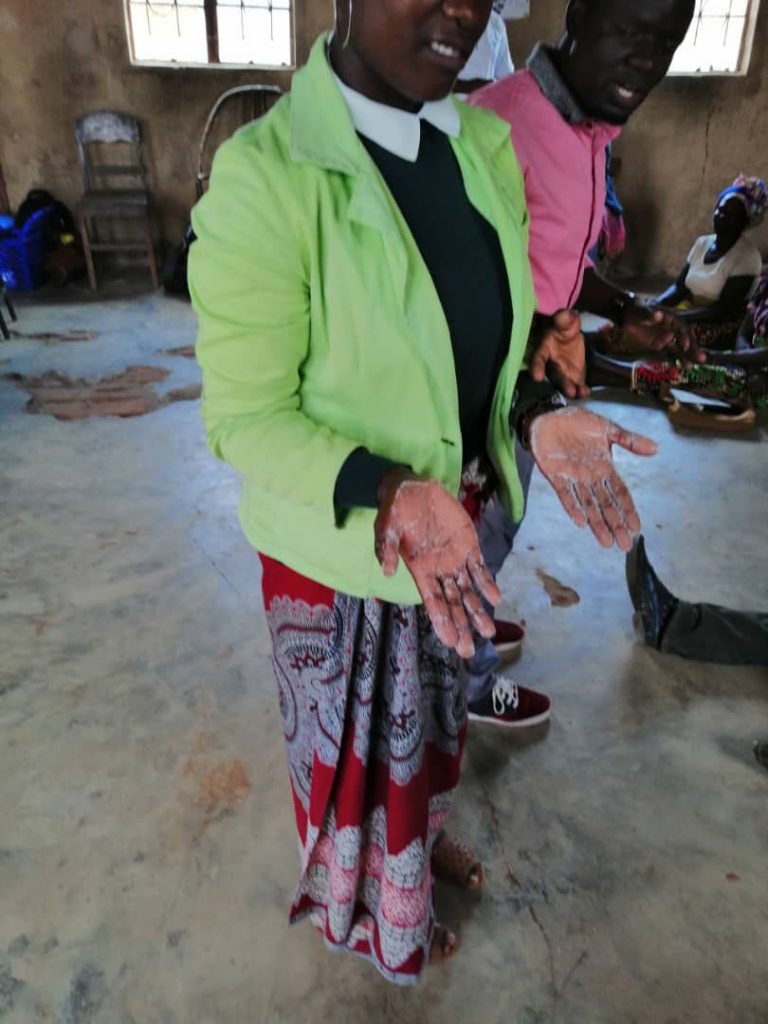
Medass showing how spreading of bacteria works by shaking hands covered in oil and flour with attendees. 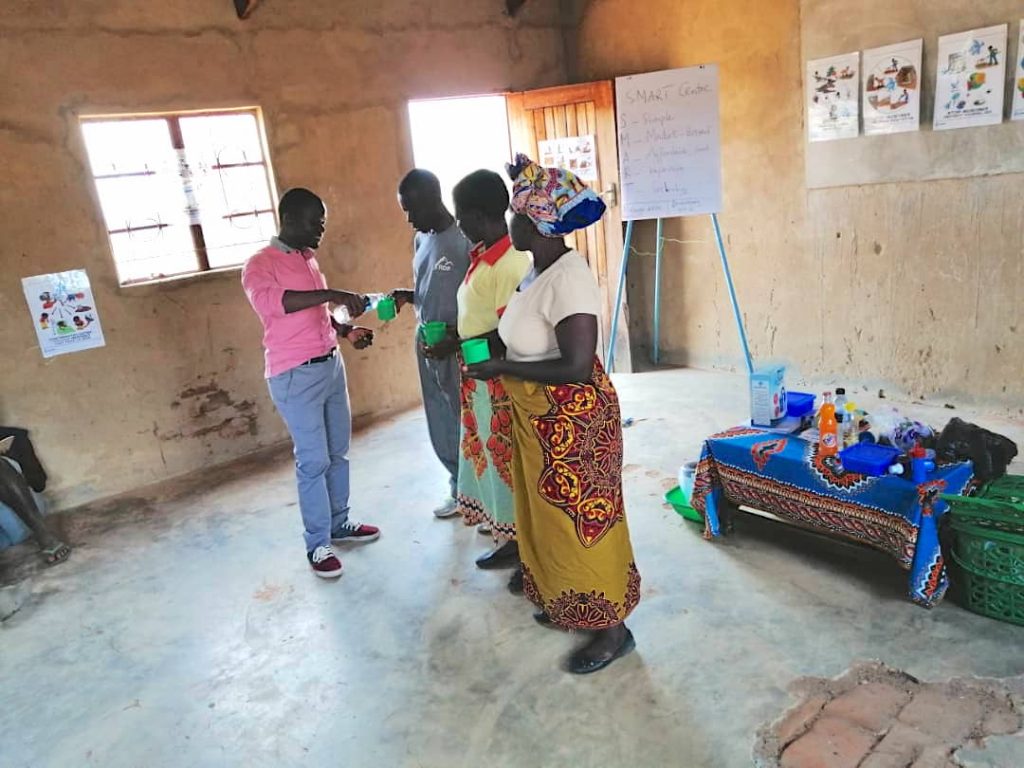
Through a taste test we show contaminated water can still be clear.
A team effort
Our staff members were excited to help, and put a lot of effort into the trainings. Medass Mhone is our office assistant, and visited the communities to help spread awareness:
Due to my educational background I’m interested in communities. I studied about community health. If community members are not happy and healthy, communities cannot develop. The same goes for a healthy community.
Especially in Malawi, our economics come mostly from farming. If someone is sick, this person is unable to work in the field and therefore cannot provide for the community or their family. I want to help create awareness about good sanitation in order to help preventing diseases. A nice addition about this training is that I’m able to learn about different cultures and the way of lives in rural communities
